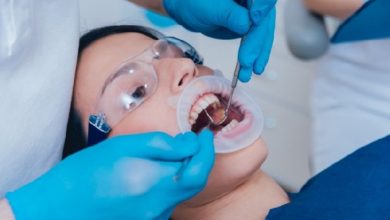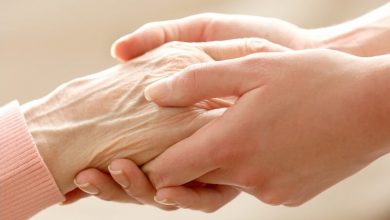
Why do women suffer from hair loss, and how to deal with it?
Here’s what to blame for those shower drains full of strands.
Our hair is our crowning glory. We do the best we can to maintain its shine, strength, and volume as these are the signs of healthy locks. Hence the regular – albeit pricey – trips to the salon are part of our monthly budget. Last year alone, British women spent £8.6 million on hair and personal grooming treatments. That’s a load of money for a head full of hair.
Hair loss in women explained
And then we see hair strands on our shower drain, on our floors, on the sheets – basically everywhere in our apartments. And we questioned why. Although it’s not a good sight nor is it exciting to vacuum our area rugs every day to get rid of loose hairs, it is common among women. Shedding is a normal part of our daily lives.
According to the American Academy of Dermatology, losing 50 to 100 hair strands daily is a natural phenomenon. There are about 100,000 hair follicles on our scalp so losing 100 a day wouldn’t do damage to our hair’s appearance.
In contrary to what we might think, women are more prone to hair loss than men. Using heat tools, hair sprays loaded with chemicals and coloring our mane once every six weeks do damage to our beautiful tresses. But apart from our love for styling, what can we blame for hair loss?
Before we tackle the causes and treatments – since losing hair strands is completely normal – when is it not normal then? Let’s first dive into the signs of hair loss.
How to tell if something’s wrong?
Between 80 and 90% of our hair follicles are growing. The rest are either resting or shedding. How to tell if it’s more than ‘shedding’ then?
Overall thinning
While it’s common among men to suffer from a receding hairline, women generally notice that the hair part expands and appear wider than before. Moderate thinning on top of the head may be noticeable too.
Handfuls of hair
Emotional and physical stress can take a toll on our hair’s health. It’s common to see handfuls of hair after an emotionally exhausting event in our lives. Hair strands may quickly loose after washing and while combing, causing acceleration on hair thinning.
Bald spots
Women suffer from bald spots too although it’s less common than our male counterparts. They may appear circular or patchy and may seem like coins in size and appearance. The scalp may feel itchy or painful immediately before the hair falls out.
Now, what’s to blame for our lovely tresses falling out?
Changes in birth control
What: About 26% of sexually active American women aged 15 to 44 are using birth control pills. It prevents pregnancy in multiple ways and is fabricated using man-made forms of the female hormones estrogen and progesterone.
Why: Birth control pills can cause hair loss in women especially to those who are sensitive to the hormones of the pills. Women who have a family history of hormone-related hair loss will most likely suffer from it too.
Our hair grows in cycles. Birth control can halt our mane’s growing phase and put it to the resting stage too soon and for too long. This is where hair loss takes place. If baldness runs in your family, birth control can speed that process up. See the signs of early baldness.
Going off the pill or switching to a different type of hormonal contraception can cause hormone-produced shedding as well.
Auto-immune diseases, scalp psoriasis, and dandruff
What: WebMD defines autoimmune diseases as causing ‘abnormally low activity or overactivity of the immune system’. The body attacks its tissues, instead of fighting infections, by producing antibodies. According to the American Autoimmune Related Diseases Association, around 50 million Americans suffer from autoimmune diseases in 2019.
Psoriasis is a common type of autoimmune disease where the immune system reproduces skin cells rapidly. This event leads to the production of silvery, thick patches on the skin. It’s common to have this on the scalp too.
Why: When there’s inflammation on the scalp caused by dandruff or scalp psoriasis, temporary hair loss is expected to happen. Since these two scalp conditions cause itchiness, people tend to scratch their heads causing hair to fall out. Likewise, forcefully removing scales to relieve scalp psoriasis causes hair loss. Other medical conditions like thyroid and diabetes can also cause hair loss.
Hormonal imbalance
What: Hormones are our body’s messengers traveling to our bloodstreams to tell our bodies what to do. They are integral in our overall health and our body’s metabolism and reproduction.
When there’s an imbalance in our hormones, a number of symptoms take place. Some of these are weight gain, fatigue, constipation, and hair thinning or fine, brittle hair.
Why: Hormones play an important part in our hair’s growth cycle. Oestrogens or female hormones keep our hair in the active growth phase for the most favorable length of time. Androgens, on the other hand, the male hormones, are not very hair-friendly.
An excess of androgens is a common factor in hair loss. This condition may be caused by Polycystic Ovarian Syndrome. The degree of this often boils down to the genes. If a person has a genetic susceptibility to follicle reactivity, a hormonal imbalance can affect her more than her friends who don’t have this predisposition.
But wait, don’t freak out
There are things you can do to remedy this problem.
For starters, avoid putting your tresses into so much stress. Let it loose and take a break from tight ponytails and other compressed styles. Get smart about styling and stop ironing your mane every day and coloring them regularly.
Taking supplements to boost levels of vitamins and minerals that are helpful in hair growth is key to volumized tresses. Look out for iron, vitamin B12, vitamin C, zinc, copper, and selenium when selecting food supplements. These are valuable in maintaining healthy hair.
Ending your relationship with chemical-loaded shampoos and conditioners will also do the trick. That is unless you want to have a hair transplant procedure soon.
Thinning hair will benefit from shampoo and conditioner that are specifically made to rebuild and protect damaged and thin hair. Specialized hair care products such as a hair growth serum will help in the development of hair follicles, thus extending their life.
Religiously following a simple yet effective hair care routine offers huge advantages in keeping our hair’s thickness and strength.





